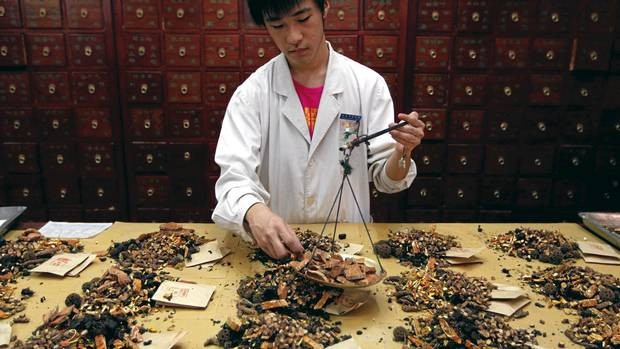WHO reveals 80% of the world unknowingly use traditional medicines
More than 40 per cent of pharmaceutical products have been made from herbal plants, with health professionals declaring cost-effectiveness as one of the major benefits of using herbal medicines.

According to the World Health Organisation (WHO), around 80 per cent of the world's population is estimated to use traditional medicines, with more than 40 per cent of pharmaceutical products having a natural product base.
These pharmaceutical medicines that draw from nature and traditional knowledge include aspirin, artemisinin, contraceptive pills and childhood cancer treatments.
Health professionals declare that the major benefits of using herbal medicines are that they are cost-effective, accessible and provide natural healing. Natural medicines also propose a mitigated risk of side effects and a variety of herbs to try.
Traditional medicines are "as old as humanity itself", the Director-General of WHO, Tedros Adhanom Ghebreyesus, recalled at an event this month.
At the event, the Director-General also recommended that the public consider herbal remedies and spoke of their ancient roots and practices.
The Director-General of WHO emphasised that traditional medicines bring "together ancient wisdom and modern science for the health and well-being of people and planet".
Mr Ghebreyesus spoke of the bark from the willow tree, used by Sumerians and Egyptians as a pain reliever and an anti-inflammatory over 3,500 years ago.
Years later, the bark from the willow tree was used to ease the pain of childbirth in ancient Greece and cure fevers.
"Then in 1897, the chemist Felix Hoffmann synthesized aspirin and the drug has gone on to improve, and save, the lives of millions of people every day," Mr Ghebreyesus informed his audience.
Aspirin is now one of the most used drugs in the world and is used as an everyday painkiller for aches and pains – such as toothaches, migraines and period pains.
Aspirin can also be used to treat colds and flu-like symptoms and will bring down a high temperature.
For millions of people around the world #TraditionalMedicine is their first stop for health and well-being.
— World Health Organization (WHO) (@WHO) August 12, 2023
Which of these have you used?
🖐️ Acupuncture
🥣Ayurveda
🌿Herbal medicine
💊 Homeopathy
🍃 Naturopathy
💆♀️ Osteopathy
🍵 Traditional Chinese medicine
☀️ Unani medicine pic.twitter.com/VY9PUq7TMW
Mr Ghebreyesus also cited a 1971 breakthrough in malaria remedies that was created using wormwood. The Director-General noted that China's Tu Youyou read about the use of sweet wormwood to treat fevers in traditional Chinese medical literature – which inherently led her team to focus on the compound artemisinin.
Artemisinin is now considered the "backbone" of malaria.
In a report, the WHO explained: "Modern medicine has built on what nature has to offer and has drawn upon traditional systems of knowledge of how these medicinal plants, herbs, roots, and bark were wielded to cure diseases across civilizations."
Simon Mills, a herbal strategist from Pukka Herbs and current complementary health pioneer in the UK, declares that "everything we do is a placebo" and a "pharmaceutical doesn't heal".
Mills credited the work of natural medicines developed by people in China and India.
"An average Asian meal is full of medicines; we call them spices... We know that these are very valuable medicinal agents," Mills said.
Working with Pukka Herbs, Mills is constructing a campaign to "change the view that they [spices] are more than flavourings. They are actually health promoting... We can actually show health outcomes that link to these things".
Discussing how herbal medicines can be easily accessed, Mills said: "We have health inequalities. You know, we talk about the five a day, but about 15 per cent of the population do the five a day, the other 85 per cent are nowhere near it."
The herbal strategist continued by saying: "How do we get them a little healthier without them having to raid their piggy bank? And one answer is to get more spices into their diet, and more herbs."
The Herbal Strategist also spoke of herbal hangover remedies and recommended that people use wormwood and bitter herbs.
Mills concluded: "If the result of a hangover is that you feel hot and steamy and have to loosen your collar, then that is when you need the bitters."
© Copyright IBTimes 2025. All rights reserved.






















